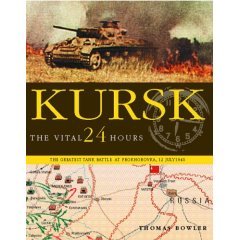The wife of Argentinian president Juan Peron, Eva had a huge influence on her country and beyond. She championed labour rights, women's suffrage and even founded the country's first large-scale female political party. Such was her popularity, she even decided to run for the vice-presidency but ultimately withdrew her candidacy and died of cancer a year later.
Born as Tremujin, in a Mongolian tribe, as a young man he united the different nomadic tribes through a mixture of war and diplomacy. Aged just 20, this great Khan then set about conquering much of the known world with his feared horsemen. Campaigns followed in parts of modern China, Russia, southern Asia and eastern Europe. He promoted on merit, allowing his generals the luxury of one mistake - proving himself an adaptable and strategic military leader.
His troops could be devastatingly brutal and it wasn't uncommon for them to execute all male prisoners, take the women as hostages and burn the village to the ground. It has also been said that Genghis himself raped so many women that one in every 200 males in the world now shares his Y chromosome. The Great Khan's predecessors actually managed to even expand the empire, making it one of the largest the world had ever known and confirming his brutal and lasting influence on the world.
Historic Leaders
Julius Caesar ''
Destroyer of the Roman republic v
The skilled politician and military leader whose rise and ': fall from power are legendary
For the early part of Caesar's life there was little evidence pointing to the profound influence he would have, not just on Rome, but the world. This isn't to say that he wasn't clever, or ambitious, but Rome was full of great men trying to make their mark in this most competitive of societies. The Rome this young man swaggered about confidently in was one of turmoil; the Roman republic had proved itself to be a breeding ground for instability and violence. This instability almost caught up with Caesar when his marriage connection to an old regime made him a target for the new one and he was told to divorce his new wife.
The young man - displaying some of the steel he would later show in spades - refused and joined the Roman army.
He excelled in the army and on his return to Rome followed the path that all great men were expected to take, winning elections to posts that were seen as stepping stones to consul, the top job. During this time he had again proved his military mettle with triumphs over Spanish tribes while serving there as a governor. His victories entitled him to a Triumph, something all great men of Rome dreamed of but only a handful a generation would achieve. The Triumph would enable Caesar to march through Rome with his army and be hailed a conquering hero. However, to stand for election for the coveted consulship he needed forgo his Triumph, something his enemies thought unlikely. Who would give up the chance to be adored by all of Rome in the greatest PR opportunity available? A kind of man with his eye on the long game. A kind of man like Caesar. ,
As consul, Caesar formed the first Triumvirate with Crassus and Pompey and achieved almost all his aims. When his year-long consulship was over, he went to Gaul where he would stay for the next eight years waging war. If he had died at the end of that campaign he would still have gone down in posterity as one of Rome's greatest military leaders. Another general, however, was getting jealous and, back in Rome, Pompey demanded Caesar return to Rome and disband his army. Caesar refused and defeated his rival at the battle of Pharsalus.
On his return to Rome, Caesar was quickly elected as consul for the second time and then also as dictator. Believing that Rome needed a strong leader to knit the ever-expanding Empire into a cohesive force, he passed a number of laws that ensured his hold on government would be complete. With this achieved, he authored several further reforming laws, such as changing the calendar to be 365 days long, land and debt reforms and approving an extensive amount of public building. By establishing himself as a dictator and significantly limiting the powers of the senate, Caesar played a major role in the end of the Roman republic. After his assassination, another civil war would break out before Octavius became the first Emperor and put the final nail in the coffin of the once glorious republic.


100-44 BCE
Jf
NATIONALITY
ROMAN
LEGACY
GREATLY EXPANDED ROME'S EMPIRE AND HIS ACTIONS LED TO THE END OF THE ROMAN REPUBLIC
Leaders Who Changed the World
George
Washington i




 World History
World History









